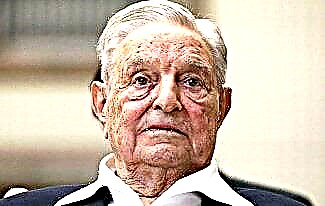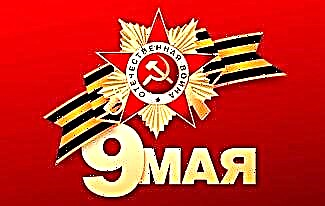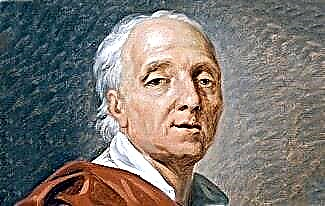Potsdam conference (also Berlin conference) - the third and last official meeting of the 3 leaders of the Big Three - Soviet leader Joseph Stalin, American President Harry Truman (USA) and British Prime Minister Winston Churchill (since July 28, Clement Attlee represented Britain at the conference instead of Churchill).
The conference was held from July 17 to August 2, 1945 near Berlin in the city of Potsdam in the Cecilienhof Palace. It examined a number of issues related to the post-war order of peace and security.

Negotiation progress
Before the Potsdam conference, the "big three" met at the Tehran and Yalta conferences, the first of which took place at the end of 1943, and the second at the beginning of 1945. The representatives of the victorious countries had to discuss the further state of affairs after Germany's surrender.
Unlike the previous conference in Yalta, this time the leaders of the USSR, USA and Great Britain behaved less friendly. Each sought to gain their own benefits from the meeting, insisting on their own terms. According to Georgy Zhukov, the greatest aggression came from the British Prime Minister, but Stalin, in a calm manner, managed to quickly convince his colleague.
According to some Western experts, Truman behaved in a defiant manner. An interesting fact is that he was appointed chairman of the conference on the recommendation of the Soviet leader.
During the Potsdam conference, 13 meetings were held with a short break due to the parliamentary elections in Britain. Thus, Churchill attended 9 meetings, after which he was replaced by the newly elected Prime Minister Clement Attlee.
Creation of the Council of Foreign Ministers
At this meeting, the Big Three agreed on the formation of the Council of Foreign Ministers (CFM). It was necessary to discuss the post-war structure of Europe.
The newly formed Council was to develop peace agreements with Germany's allies. It is worth noting that this body included representatives of the USSR, Britain, America, France and China.
Solutions to the German problem
The greatest attention at the Potsdam Conference was paid to the issues of German disarmament, democratization and the elimination of any manifestations of Nazism. In Germany, it was necessary to destroy the entire military industry and even those enterprises that theoretically could produce military equipment or ammunition.
At the same time, the heads of the USSR, USA and Great Britain discussed the issue of the further political life of Germany. After the elimination of the military potential, the country had to concentrate on the development of the agricultural sector and peaceful industry for domestic consumption.

Politicians came to a unanimous opinion to prevent the resurgence of Nazism, and that Germany could ever disrupt world order.
Control mechanism in Germany
At the Potsdam Conference, it was affirmed that all supreme power in Germany would be carried out under the strict control of the Soviet Union, America, Britain and France. Each of the countries was given a separate zone, which was to develop according to the agreed rules.
It is worth noting that the conference participants considered Germany as a single economic whole, striving to create a mechanism that would allow controlling various industries: industry, agricultural activities, forestry, motor transport, communications, etc.
Reparations
In the course of lengthy discussions between the leaders of the countries of the anti-Hitler coalition, it was decided to receive reparations on the principle that each of the 4 countries that occupied Germany reimbursed their reparation claims only in their own zone.
Since the USSR suffered the most damage, it got the western territories of Germany, where industrial enterprises were located. In addition, Stalin made sure that Moscow received reparations from the corresponding investments of Germany abroad - in Bulgaria, Hungary, Romania, Finland and Eastern Austria.
From the western regions of the occupation, Russia received 15% of the industrial equipment seized there, giving the Germans in return the necessary food, which was delivered from the USSR. Also, the city of Konigsberg (now Kaliningrad) went to the Soviet Union, which was discussed by the "Big Three" back in Tehran.
Polish question
At the Potsdam Conference, it was approved to establish a provisional government of national unity in Poland. For this reason, Stalin insisted that the United States and Britain sever any relationship with the Polish government in exile in London.
Moreover, America and Great Britain pledged to support the interim government and facilitate the transfer of all valuables and property that were under the control of the government in exile.
This led to the fact that the conference decided to dissolve the Polish government in exile and protect the interests of the interim Polish government. Poland's new borders were also established, which sparked a lengthy debate among the Big Three.
Conclusion of peace treaties and admission to the UN
At the Potsdam Conference, much attention was paid to political issues regarding those states that were allies of Nazi Germany during the Second World War (1939-1945), but then broke with it and made their contribution to the fight against the Third Reich.
In particular, Italy was recognized as a country that, at the height of the war, contributed to the destruction of fascism. In this regard, all parties agreed to admit it to the newly formed United Nations Organization, created to support peace and security throughout the planet.
At the suggestion of British diplomats, a decision was reached to satisfy requests for admission to the UN of countries that remained neutral during the war.

In Austria, occupied by 4 victorious countries, an allied control mechanism was introduced, as a result of which 4 zones of occupation were established.
Syria and Lebanon have asked the UN to withdraw the occupying forces of France and Great Britain from their territories. As a result, their requests were granted. In addition, the delegates of the Potsdam conference discussed issues related to Yugoslavia, Greece, Trieste and other regions.
It is important to note that America and Britain were extremely interested in the USSR declaring war on Japan. As a result, Stalin promised to join the war, which was done. By the way, the Soviet troops managed to defeat the Japanese in just 3 weeks, forcing them to surrender.
Results and significance of the Potsdam conference
The Potsdam Conference managed to conclude a number of important agreements, which were supported by other countries of the world. In particular, the norms of peace and security in Europe were established, a program for the disarmament and denazification of Germany began.
The leaders of the victorious countries agreed that interstate relations should be based on the principles of independence, equality and non-interference in internal affairs. The conference also proved the possibility of cooperation between states with different political systems.
Photo of the Potsdam Conference

















